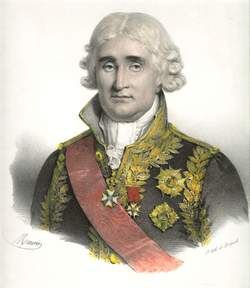Name: Agostino Epifano Gonzaga, Marquess of Monferatto
Date of Birth: June 9, 1816 (20)
Place of Birth: Monferatto
Class: Aristocrat
Position: Marquess of Monferatto
Ancestral lands: Monferatto, in Genoa region
Bio: Following the Spanish War of Succession, the Marquess of Monferatto was confiscated from Ferdinand Chalres of Gonzaga-Nevers by the House of Savoy. His son, Giovanni Gonzaga did successfully petition for the lands back from the House of Savoy. This was a start of Gonzaga vassalage to House Savoy. This has continued to this day.
Agostino's father, Eleuterio Philipo Gonzaga, was given a commission in the Piedmont military, and served with distinction. Eleuterio also married the older sister of Vincenzo Roberto Pec. With the Pec family connections, his military glory, and the Gonzaga family fortune, Eleuterio made a swift wise in Sardinian politics, even landing a position on the Privy Council. Sadly, Eleuterio used up the entire Gonzaga fortune, and went into debt, before dyeing under suspicious circumstances, leaving Agostino a debt to deal with.
Agostino Epifanso Gonzaga was born on June 9th, 1816, in the family estates. He was educated in Oxford, and Paris. After completing his education, Agostino was secured a position as a Gentleman-in-waiting to the King. He managed to make several friends and allies in the court, before his father died. After his father died, Agostino left the court and became the Marquis of Monferatto. After returning home, he found out the state of the family's finances, and had to deal with the debtors knocking at his door. Using all his friends at the Court,and cashing in ever favor he had, he was able to massively reduce the debt, and keep his father's position on the Privy Council. He still had some debt to pay by some other means, so, he looked to get married. The industrialist Enzio Ferrabino was looking for husbands for his nieces, the sisters of Major Napoleone d'Auria. Desperate for money, Agostino had too swallow his pride and go to Ferrabino in the hopes of securing a large dowry. Ferrabino leaped at the idea of getting a noble, and member of the Privy Council, in his debt, and so relented, offering a very generous dowry, that not just covered the rest of the debt, but also a little bit of extra money. Agostino then met with both of the nieces. While he did get along with Eugenia, Agostino found that he was far more comfortable around Augusta, and the two quickly became friends. Agostino and Augusta were quickly betrothed, and Agostino set about preparing the Marquess-to-be for life at court. The two were married shortly before the end of 1835, in a ceremony attended by close family.





